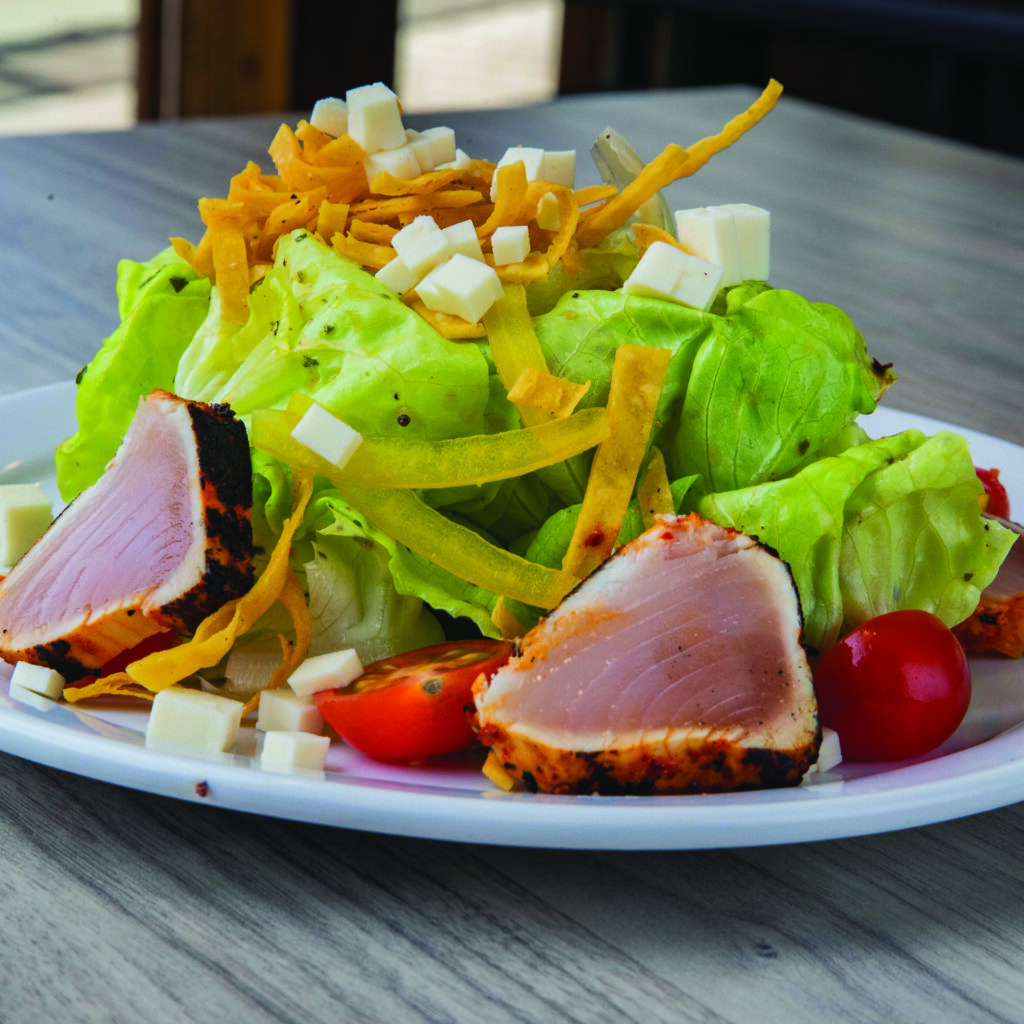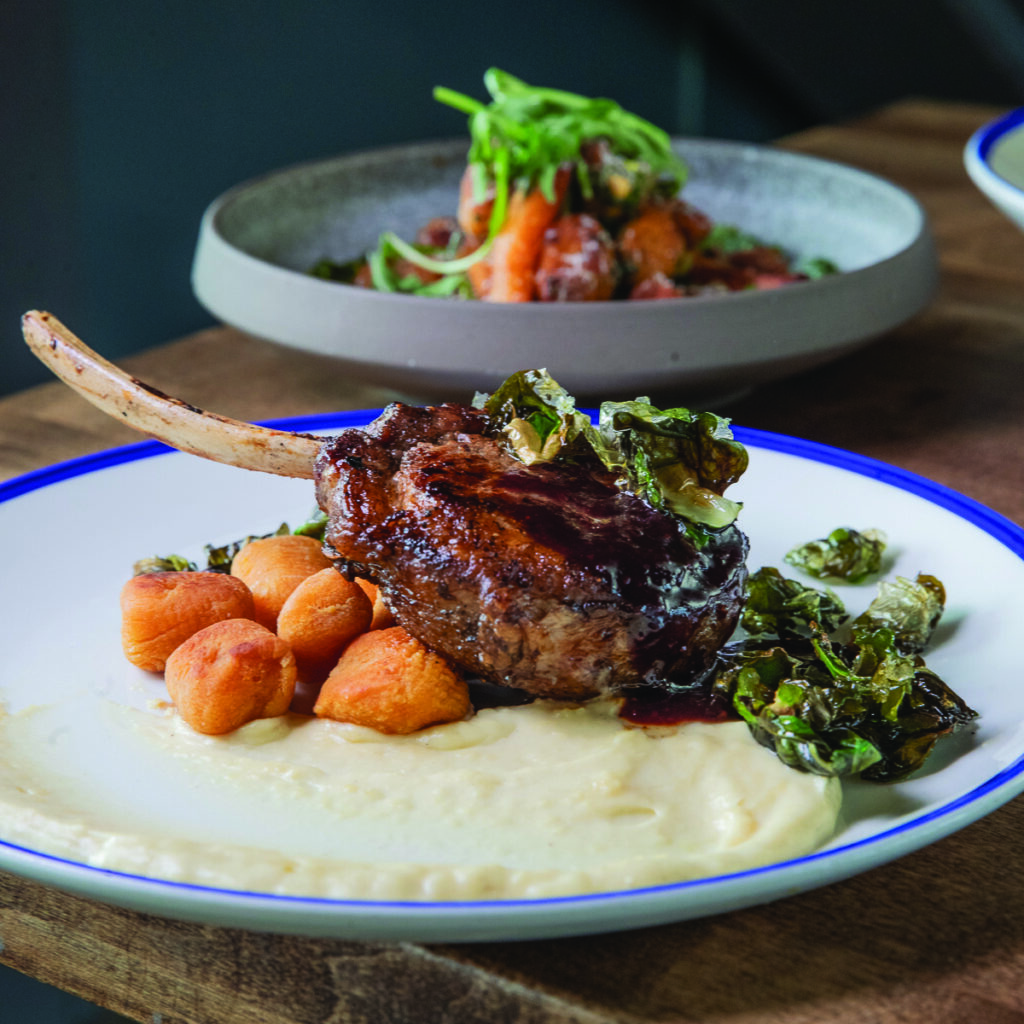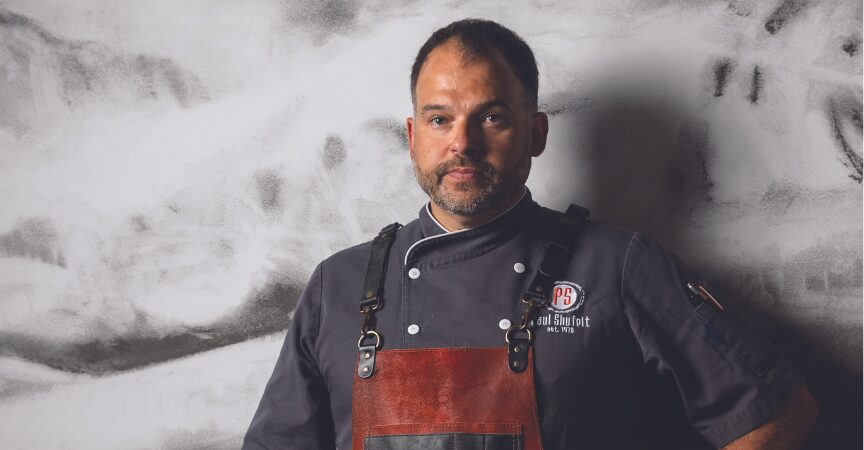Robert Spencer Hospitality: Engineering Circularity & Resilience Into Farm-to-Table Operations
Chef & Proprietor: Paul Shufelt | Groupex member since: before 2015 | Edmonton, Alberta
Edmonton-based restaurant group Robert Spencer Hospitality is the brainchild of founder Chef Paul Shufelt. It is also an impressive example of how engineered, intentional circular economies can work within a restaurant enterprise.
Shufelt has been in the restaurant industry for nearly 30 years and says he fell in love with the meritocratic culture of restaurants during his first gig as a dishwasher in highschool. He enrolled in college to study engineering, but soon realized he “didn’t love it” and left for the Canmore-Banff area to work at a golf course and then at Buffalo Mountain Lodge. “That’s when I started to take the craft seriously,” Shufelt shares. “I applied for my apprenticeship and, when I graduated, I pursued an opportunity in Switzerland, where I combined the foundational elements of what I’d learned at school and in the business up to that point. When I returned, I thought I’d be in Edmonton for a few months, but that was in 2002, so…”
Shufelt worked with an Edmonton restaurant group for nearly a decade, opening restaurants, working as corporate chef and quickly becoming a partner. He credits this chapter of his career with teaching him the ins and outs of a kitchen and a restaurant which gave him the right mindset for running a successful business. “Eventually, I grew tired of being a passenger on someone else’s ride,” Shufelt explains. “I signed a lease in 2015 and started working on Workshop Eatery. We wanted to be hyper-seasonal and offer from-scratch cooking—cooking “like mom used to” and making preserves and freezing ingredients at peak to use during the winter.”
Warm, welcoming and unpretentious, Workshop Eatery opened in November of 2015, and by its second year, Shufelt started to look around for his next opportunity. Responsible use is a large part of his philosophy, so he found ways to work with local farmers and to use the whole animal within the restaurant. “We were doing that with pork, poultry and duck, but we couldn’t achieve that with our beef program because the restaurant concept lent itself to the nicer, quality cuts and less well to the grind and stewing meat. That’s where the concept for Woodshed Burgers came from. We wanted to be able to go to farmers and buy the whole animal and use it all. We worked with Jeff Nonay at Lakeside Farmstead and proudly serve his beef. We wanted to grow that relationship and serve his burgers. It was also a lot of fun for me. Workshop is more finessed dining, whereas Woodshed is more what a chef might eat on his way home — more casual, creative, indulgent and fun.”
Woodshed Burgers opened in the summer of 2019, followed by a partnership with the City of Edmonton to take over three local golf course restaurants. Then, like everyone else, they started to hear rumbles of something called “coronavirus” and by March, they were scrambling. Woodshed Burgers enjoyed success with a hard pivot to delivery, and for awhile Shufelt converted Workshop Eatery to a Woodshed Burgers location. Based on success with the takeout and delivery model at that location, Shufelt signed a new lease for a second, Woodshed Burgers in Edmonton’s South side. “We went from about 40 employees to 120 in roughly 90 days,” Shufelt recalls.


Building a circular economy across his growing restaurant group, he then opened Hayloft Steak & Fish in March of 2022. “Hayloft really allows us to do that whole animal use program under one roof and a different style of steakhouse to Edmonton as well. We don’t have a prime rib, a tenderloin or striploin every night; we have select cuts that change by the day. We believe in using the whole animal.
We might have some tenderloin or a ribeye, but I just put in a Texas smoked brisket, so we have different cuts you might not see every day. Our trim cuts are used at Woodshed Burgers and so we’ve really taken things to the next level. We render our fat to make tallow candles for the tables and we also use that tallow to do our french fries in the deep fryer. We’ve taken on the challenge of using as much of the animal as we possibly can.”
Ethical cooking and close relationships with farmers and suppliers are important to Shufelt and he notes that while there are cost savings, there is also a lot of work in maintaining his system. “We have a direct line to Jeff, who raises our beef, and there’s an elaborate spreadsheet we work on between our businesses. We’ll have anywhere from five to eight animals on the go at a given time. It’s been a huge process, but I sleep well at night knowing we’re good partners to the farmers and we’re being responsible stewards of the products we use. They’re being managed as efficiently as possible and they’re not going to waste. There is a responsibility on the restaurant side to do as little harm as possible and waste as little as possible. I have a daughter, and I need to be part of that solution.”
Shufelt nurtures direct relationships with all of his suppliers and farmers and has grown as an entrepreneur and a culinarian. “I want them to be able to call me if they have 200 pounds of weird-looking carrots that taste amazing but won’t sell at the market. I’ll find a use for them—pickle them or make soup. We work together and help each other. We just started working with a bison farmer, and they’ve never had a restaurant take a whole animal. Many of these “suppliers” are my friends. We’re working together, sharing information and skills instead of just ordering and providing product.”
Shufelt acknowledges that even with their vast garden beds and direct relationships with local farmers for proteins and produce, Robert Spencer Hospitality group of restaurants also relies on strong relationships with conventional restaurant suppliers. Shufelt credits the organization with giving smaller operations cost saving opportunities via their rebate program that facilitate investment in other areas of their business. “Groupex really benefits small businesses like us. From our linens, our dish chemicals, payment terminals, garbage collection services, they go out and do a lot of hard work to make it affordable for the small guys to source products and services at prices comparable to larger organizations. That allows us to keep doing what we’re doing and make better choices in other areas of our business, like the beef and pork programs.” Shufelt joined the Groupex Canada board of directors in 2022 to represent the perspective of independent restaurants. “We’re a little bit different, and Groupex wanted that different opinion. I’m happy to help them out so they can keep doing the good work they’re doing and grow and evolve. It’s important to me to be part of the solution and contribute to making things better and more manageable for smaller restaurants. I’m as frugal as they come. To me, it’s not about not spending money, it’s about spending money wisely. I can’t think of a group or purchase that’s more affordable than joining Restaurants Canada and taking part in Groupex to redeem the benefits. My annual dues are covered in the first two weeks of rebates.”
Established in 1984 by a small group of independent restaurants, today, Groupex is the largest foodservice account in Canada with some of the leading branded suppliers such as Pepsico, Diversey, Canada Bread and Gordon Food Service. Groupex uses the buying power of its national membership base to negotiate savings on essential restaurant supplies and services. Members save thousands of dollars on beverages, food, operational and financial programs.
Learn more at: groupex.com









